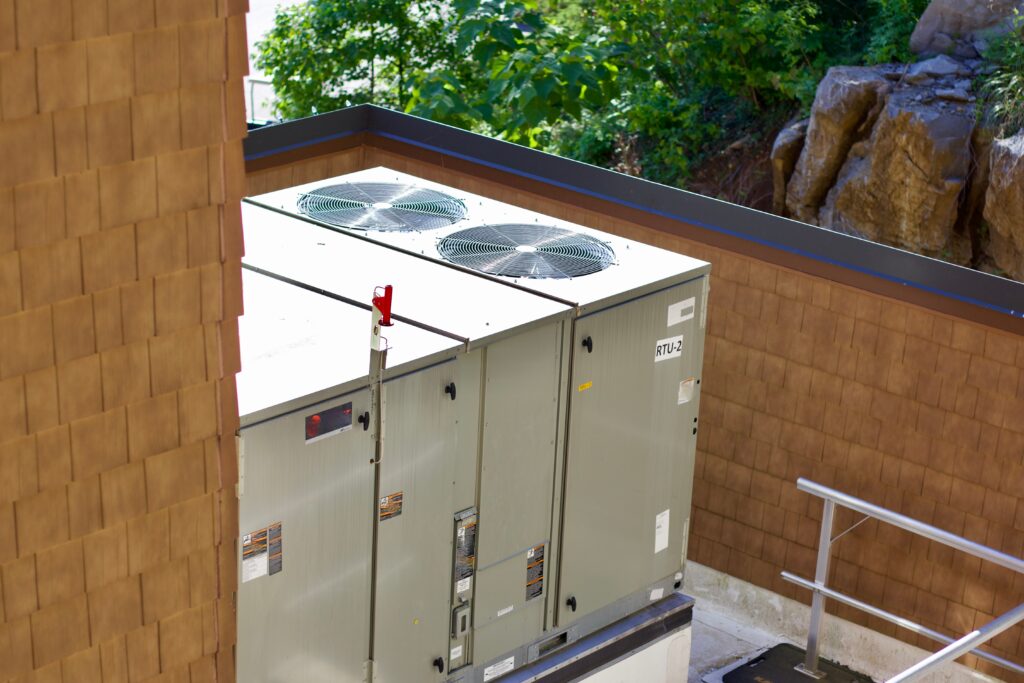In today’s world, it’s more important than ever to approach heating, ventilation, and air conditioning (HVAC) with a focus on sustainability. These systems are essential for maintaining comfortable living and working environments, but they can also be significant energy guzzlers. By adopting some simple, sustainable practices, you can not only reduce your environmental footprint but also lower your energy bills. Here are some practical tips to get you started.
1. Optimize Your Thermostat Settings
Adjusting your thermostat is one of the simplest ways to reduce energy consumption. During the warmer months, set it to the highest comfortable temperature, and in the winter, aim for the lowest comfortable setting. Investing in a programmable thermostat can make this process even easier, allowing you to automatically adjust temperatures based on your daily routine. This way, your HVAC system works less when you’re not home, leading to substantial energy savings over time. Consider the benefits discussed in our guide to energy-efficient HVAC solutions for more insights.
Smart thermostats take optimization to the next level by learning your habits and making energy-saving adjustments autonomously. They can connect to mobile devices, giving you control even when you’re away from home. This kind of technology is not only convenient but also contributes significantly to energy and cost savings, demonstrating that small technological investments can lead to greater financial benefits.
2. Regular Maintenance is Key
Regular maintenance is essential to keep your HVAC system running efficiently. This includes checking, cleaning, and replacing filters as per the manufacturer’s instructions—a task that hugely impacts air quality and system efficiency. Dirty filters can lead to system overstrain and increased energy consumption. Schedule seasonal maintenance with a professional to inspect various system components, ensuring they operate optimally. By keeping up with routine checks, you effectively prolong the system’s lifespan and maintain its energy efficiency.
3. Seal and Insulate Your Home
Sealing and insulating your home is vital for optimizing your HVAC system’s performance. Air leaks can significantly decrease your system’s efficiency as they let the conditioned air escape, forcing your HVAC system to work harder. Seal cracks around windows, doors, and other openings, and ensure your attic and walls are well-insulated. This helps maintain desired indoor temperatures with less energy use.
4. Install Energy-Efficient Equipment
Upgrading to energy-efficient HVAC systems can dramatically cut energy consumption. Modern systems are designed to meet stricter efficiency standards, meaning they deliver the same comfort levels while using less energy. Look for systems with a high SEER (Seasonal Energy Efficiency Ratio) rating and ensure they are Energy Star certified for maximum efficiency and environmental benefits.
Besides offering energy cost savings, these systems often deliver quieter operation and improved air quality, giving you a healthier living environment. Evaluate your home’s specific requirements, and consult with a professional to choose the best eco-friendly HVAC system for your needs.
5. Utilize Natural Ventilation
Natural ventilation can effectively reduce your reliance on mechanical cooling. Open your windows during cooler periods of the day, such as early morning or evening, to allow fresh air to flow through. This practice not only saves energy but also improves indoor air quality by providing a continuous supply of fresh outside air. It’s a simple yet effective measure to keep your space comfortable while minimizing HVAC use.
6. Harness the Power of Ceiling Fans
Ceiling fans are an underrated tool for maintaining comfort while conserving energy. By circulating air, fans create a wind-chill effect that can make a room feel cooler than it is, allowing you to raise your thermostat setting by a few degrees without compromising comfort. In winter, reverse the fan’s direction to push warm air downward, enhancing heating efficiency. Simple strategies like utilizing ceiling fans can lead to significant energy savings over time.
7. Invest in Smart Technology
Smart technology can transform how we interact with our HVAC systems by providing precise control and monitoring capabilities. Devices like smart sensors and thermostats offer data that can help you make informed decisions about energy usage. These technologies adjust settings automatically based on occupancy and weather predictions, ensuring maximum efficiency and comfort with minimal manual input.
The added control over your heating and cooling systems not only enhances comfort but also paves the way for impressive energy savings. It’s worth considering an upgrade to smart HVAC technology in conjunction with sustainable HVAC solutions for long-term gains.
8. Shade and Shelter for Efficiency
Strategically using shade can reduce your home’s heat gain, thus minimizing your need for air conditioning. Employ blinds or shades indoors to block out direct sunlight during peak hours. Planting trees or shrubs outside can provide natural shade and enhance landscape aesthetics. Both these methods help maintain cooler indoor temperatures naturally, lessening the load on your HVAC system and contributing to lower energy bills.
9. Reduce Heat-Producing Activities
Being mindful of heat-producing activities, especially during the hottest parts of the day, can reduce your cooling requirements significantly. Tasks like baking, using the oven, or running the dryer generate excess heat, causing your HVAC system to work harder to maintain a comfortable environment. Plan such activities for cooler times of the day or opt for alternative methods to minimize their impact.
10. Educate Yourself on HVAC Efficiency
Understanding the intricacies of HVAC technology can empower you to make smarter decisions about energy efficiency. Stay up-to-date with the latest advancements and practices in HVAC systems. Knowledge is power, and continued learning can lead to effective practices that yield further savings. Check resources from industry experts or consult with professionals to enhance your understanding and harness the full potential of sustainable HVAC solutions.



